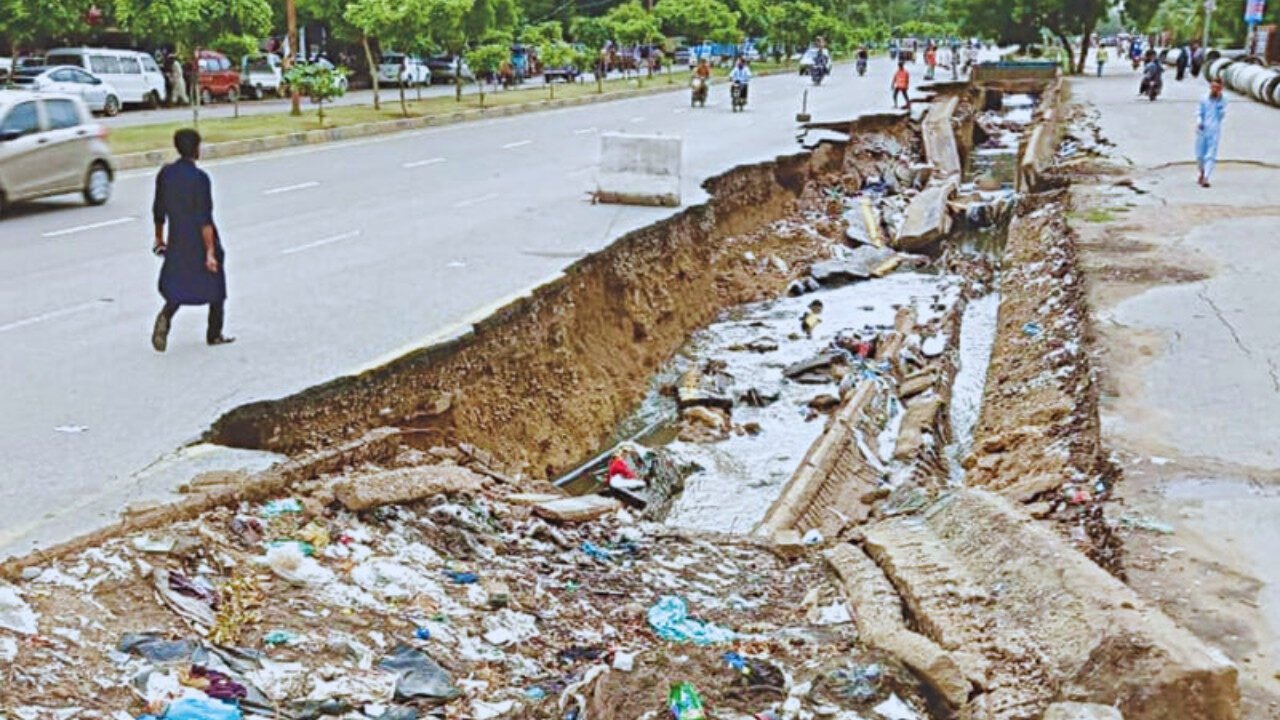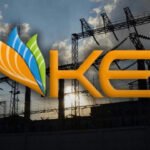By Ahmed Khan
Imagine trucks stuck in water-filled potholes, streets blocked by open drains, and workers trying to navigate garbage-strewn roads just to reach their factories.
This is the daily reality for businesses in Sindh’s industrial zones, from Karachi to Hyderabad and Sukkur.
Poor roads, flooding, and failing utilities are threatening jobs, exports, and investor confidence across the province.
Industrialists and trade associations say conditions in these zones have steadily worsened over the years.
Business leaders warn that without urgent action, Sindh could face slowed industrial growth, job losses, and declining exports.
Potholes, Floods, and Unsafe Streets
In SITE Karachi, roads are riddled with potholes, open manholes block streets, storm drains overflow after even light rain, and streetlights are often missing.
Garbage lines the main roads, creating unsafe conditions for workers and delivery trucks alike.
“We are running factories in what feels like a war zone,” said industrialist Ahmed Musarrat. “Trucks carrying raw materials or finished goods face constant delays, and our workers endure unsafe and unhygienic conditions every day.”
Utilities in Hyderabad and Sukkur
Hyderabad and Sukkur face similar problems. Business owners report unpredictable electricity, gas shortages, and broken water pipelines.
“The Hyderabad Chamber of Commerce and Industry has repeatedly called on the Sindh government for help, warning that the situation is an economic emergency,” said Latif Jumani, a chamber member.
Financial and Operational Strains
Industries in SITE zones contribute billions of rupees in taxes and employ thousands.
But poor infrastructure raises costs, lowers productivity, and scares away potential investors.
“Factories have to install their own water filtration, generators, and waste-disposal systems,” Musarrat said.
“This extra burden makes our products less competitive in regional markets.”
He added that if the industrial zones aren’t fixed soon, Sindh could lose out on investments under the Special Economic Zones program and other export-focused initiatives.
Government Promises and Slow Progress
Earlier this year, the Sindh government approved Rs1.1 billion for Hyderabad SITE to repair roads, fix drainage, and install streetlights.
Sukkur SITE also received promises of faster road reconstruction and waived industrial fees.
Despite these plans, progress has been slow. Jumani blamed delays in bureaucracy and poor coordination between SITE Limited, which manages the estates, and local authorities.
“There is no shortage of plans or funds,” he said. “What’s missing is execution. Projects are announced with fanfare but rarely finish on time.”
Recommendations for Industrial Revival
Jumani urged the Sindh government to focus on five key areas: reliable utilities, road and drainage reconstruction, waste management, clearing encroachments, and transparent governance.
He also suggested regular public updates and a joint oversight committee including government officials, industrialists, and urban planners.
Musarrat stressed that Sindh’s industrial zones, especially SITE Karachi, are crucial for Pakistan’s manufacturing base.
But without immediate upgrades, these zones risk losing their edge to emerging industrial hubs in Punjab and Khyber Pakhtunkhwa.
Author Profile
-
Ahmed Khan is a business journalist who specializes in Pakistan’s financial markets, corporate earnings, and economic policy.
With a keen eye for market trends and investor behavior, he breaks down complex financial developments into clear, insightful stories for everyday readers.





